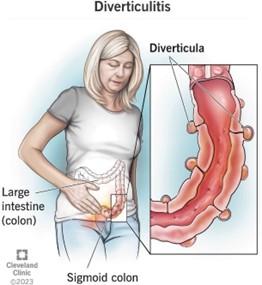A nurse is collecting data on a client who has hyperthyroidism. Which of the following manifestations should the nurse expect the client to report?
Sensitivity to cold
Frequent mood changes
Weight gain
Constipation
The Correct Answer is B
Choice A: Sensitivity to cold. This is incorrect because sensitivity to cold is a manifestation of hypothyroidism, not hyperthyroidism. Clients with hyperthyroidism have increased metabolism and heat production, which makes them more sensitive to heat.
Choice B: Frequent mood changes. This is correct because frequent mood changes are a manifestation of hyperthyroidism. Clients with hyperthyroidism have increased levels of thyroid hormones, which can affect their nervous system and cause irritability, anxiety, nervousness, or emotional instability.
Choice C: Weight gain. This is incorrect because weight gain is a manifestation of hypothyroidism, not hyperthyroidism. Clients with hyperthyroidism have increased metabolism and appetite, which makes them lose weight or have difficulty gaining weight.
Choice D: Constipation. This is incorrect because constipation is a manifestation of hypothyroidism, not hyperthyroidism. Clients with hyperthyroidism have increased bowel motility and peristalsis, which makes them more prone to diarrhea or frequent stools.
Nursing Test Bank
Naxlex Comprehensive Predictor Exams
Related Questions
Correct Answer is D
Explanation
Choice A: Place the client on his back. This is incorrect because the client should be placed in a sitting position with the head of the bed elevated to 30 to 45 degrees. This allows the fluid to accumulate in the lower abdomen and reduces the risk of puncturing the diaphragm.
Choice B: Have the client increase fluid intake after the procedure. This is also incorrect because the client should restrict fluid intake after the procedure to prevent fluid overload and electrolyte imbalance. The nurse should monitor the client’s intake and output, weight, and vital signs.
Choice C: Assure the client that the procedure is painless. This is not true because the client may experience some discomfort or pressure during the insertion of the needle or catheter. The nurse should administer analgesics as prescribed and provide emotional support.
Choice D: Instruct the client to empty his bladder. This is correct because this reduces the risk of bladder injury during the procedure. The nurse should also measure and record the amount of urine voided.
Correct Answer is A
Explanation
Choice A reason: Roast chicken with white rice is a low-fiber, easy-to-digest meal that is suitable for a client who has recovered from the acute phase of diverticulitis. A low-fiber diet can help reduce the stress on the colon and allow it to heal. White rice is a refined grain that has less fiber than whole grains, such as brown rice or quinoa12.
Choice B reason: A poached egg with sliced tomatoes is not a good choice for a client who has recovered from the acute phase of diverticulitis. Although eggs are a good source of protein and do not contain fiber, tomatoes are high in fiber and may irritate the colon. Tomatoes also have seeds, which were previously thought to cause problems for people with diverticular disease, but there is no evidence to support this. However, some people may still find them uncomfortable to eat13.
Choice C reason: Bean soup with steamed broccoli is not a good choice for a client who has recovered from the acute phase of diverticulitis. Beans and broccoli are both high in fiber and may cause gas, bloating, and cramping in the colon. A high-fiber diet is recommended for people with diverticulosis (the presence of pouches without inflammation) to prevent constipation and diverticulitis, but it should be avoided during or shortly after an episode of diverticulitis12.
Choice D reason: Ham sandwich on white bread is not a good choice for a client who has recovered from the acute phase of diverticulitis. Although white bread is low in fiber, ham is a processed meat that may increase the risk of developing diverticular disease. Research suggests that a diet high in red meat and processed meat may contribute to inflammation and infection of the pouches in the colon.

Whether you are a student looking to ace your exams or a practicing nurse seeking to enhance your expertise , our nursing education contents will empower you with the confidence and competence to make a difference in the lives of patients and become a respected leader in the healthcare field.
Visit Naxlex, invest in your future and unlock endless possibilities with our unparalleled nursing education contents today
Report Wrong Answer on the Current Question
Do you disagree with the answer? If yes, what is your expected answer? Explain.
Kindly be descriptive with the issue you are facing.
